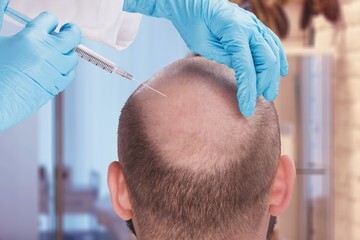Categories
Tags
-
#FUE in hair transplant
#Hair Transplant UK
#Hair Loss Treatments UK
#Norwood Scale of Baldness
#hair loss specialist uk
#PRP hair treatment
#Hair Loss Treatment
#Hair Transplants
#Hair Transplants uk
#FUE hair transplant
#Hair Loss Clinic
#Hair Loss Clinic UK
#Alopecia Treatment in Turkey
#hair transplant centres
#alopecia treatment for women
#hair treatment
#Hair Transplant Surgery
#hair loss clinic in the UK
#FUE Hair Replacement
#Hair Transplant
#hair transplants in London
#Hair Transplant in the UK
#Hair Loss Treatment for Men
#Best Hair Transplant in Istanbul
Archives
What Are the Risks and Side Effects of Hair Transplant Surgery?
-
Hair loss can be a distressing experience for many, leading individuals to seek solutions that promise renewed confidence and a youthful appearance. One popular option is hair transplantsurgery, particularly the FUE hair transplant method. This minimally invasive technique has gained traction in the UK, with numerous hair transplant UK clinics emerging to meet the growing demand.
But while the prospect of lush locks may sound appealing, it's essential to understand what you're getting into.
Before taking that leap into your journey toward restored hair, let's explore the benefits, risks, and side effects associated with this procedure. Knowledge is power when making decisions about your health and appearance—so let's dive deeper into what a hair transplant truly entails!
Understanding the Risks Associated with the Procedure
Hair transplant surgery, while increasingly popular, is not without its risks. One of the most common concerns is infection. Even with proper care, surgical procedures can introduce bacteria into the body.
Another significant risk involves scarring. The method used—whether FUE hair transplant or another technique—can affect how noticeable scars may be post-surgery. Some individuals may heal better than others.
There's also the possibility of poor graft survival rates. Not all transplanted hair follicles take root successfully, leading to patchy results that might require additional procedures for a fuller look.
Allergic reactions to anaesthesia are rare but possible. These reactions can create complications during and after the surgery.
It's crucial to discuss these potential risks with your chosen hair transplant clinic in the UK before proceeding, so you're fully informed about what lies ahead. When selecting a provider, consider well-known names such as Want Hair Ltd, which is recognised for excellence in hair transplant treatment across the UK.
Potential Side Effects of Hair Transplant Surgery
After undergoing hair transplant surgery, patients may experience various side effects. One common issue is swelling around the forehead and eyes. This can be uncomfortable but usually subsides within a few days.
Another possible side effect is itching in the transplanted area. Resisting scratching is essential, as this could disrupt the healing process or damage newly implanted follicles.
Some individuals report temporary numbness or tingling in the scalp. While unsettling, these sensations often resolve on their own over time.
There might be some redness at the donor and recipient sites post-surgery. This typically fades as healing progresses, but it can cause concern for those eager to see results sooner rather than later.
There's a chance of shock loss where existing hair thins temporarily before regrowth begins. Understanding these potential side effects helps set realistic expectations for prospective patients considering hair transplant UK options.
Tips for Minimising Risks and Side Effects
Choosing a reputable hair transplant clinic is crucial. Research UK hair transplant clinic, especially those with strong reviews and credentials. Look for specialised facilities focusing on FUE hair transplant techniques, which often have better results.
Consult with your doctor thoroughly before the procedure. Discuss any medical conditions or medications you're taking to ensure everything aligns well with your treatment plan.
Post-surgery care is just as critical. Follow all aftercare instructions provided by your surgeon to promote healing and reduce complications.
Stay hydrated and maintain a healthy diet leading up to the surgery date. Nutrition plays a significant role in recovery and overall well-being.
Managing stress levels can aid in quicker recovery times. Consider relaxation techniques such as meditation or gentle exercise to keep anxiety at bay during this process.
If you're looking for a trusted provider, Want Hair Ltd is a leading UK hair transplant clinic offering comprehensive consultations and personalised care plans.
Conclusion
Hair transplant surgery can be a life-changing procedure for many individuals struggling with hair loss. However, like any medical intervention, it comes with risks and potential side effects that should not be overlooked.
Understanding these risks is crucial for anyone considering the procedure. Typical issues may include infection, scarring, or unsatisfactory results if performed by an inexperienced surgeon at a subpar hair transplant clinic in the UK.
The side effects can range from temporary discomfort to long-term concerns, depending on factors such as individual healing processes and aftercare compliance. Choosing a reputable UK hair transplant clinic in Manchester or Leeds that prioritises patient care and offers comprehensive hair transplant consultation services is essential.
To minimise the likelihood of complications, follow pre- and post-operative guidelines provided by your healthcare provider. This includes avoiding blood thinners before surgery and following aftercare recommendations once the procedure is complete.
Choosing between options like FUE hair transplant and other techniques also affects outcomes. Researching well-reviewed clinics known for their best practices within the UK—such as Want Hair Ltd—will enhance your chances of success.
Taking all this into account can lead to informed decisions about undergoing hair transplant treatment while reducing anxiety over possible adverse experiences associated with it.





